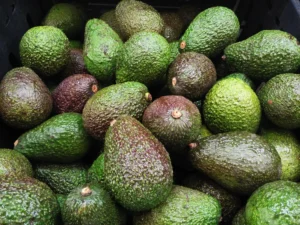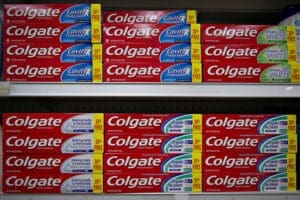From bathroom fixtures to avocados, supply chains are undergoing a wave of transformation driven by resilience, cost pressures, and sustainability demands. This week’s headlines highlight how companies and governments alike are rethinking operations: Toto is reshoring production with a $224 million advanced factory in Georgia, while Colgate-Palmolive launches a $300 million supply chain optimization push. UPS shippers brace for steeper holiday surcharges, and Mexico’s avocado industry commits to deforestation-free exports by 2026. Meanwhile, the U.S. Department of Energy is investing $60 million into critical minerals programs to strengthen domestic security and reduce foreign reliance. Together, these stories paint a picture of a supply chain landscape balancing efficiency, responsibility, and innovation in a rapidly shifting global market.
The Biggest Stories of the Week:
Toto Opens $224M Factory in Georgia to Boost Supply Chain Resiliency
 Toto has launched a $224 million advanced manufacturing facility in Morrow, Georgia, marking a strategic shift in its supply chain by relocating production from Asia to North America. This move boosts regional manufacturing resilience, shortens lead times, and supports sustainability goals by reducing shipping distances and carbon emissions. The three-story plant, which will produce 300,000 high-end one-piece toilets annually, features cutting-edge technology like high-pressure casting and heat-resistant QR codes for real-time tracking and quality control. With this expansion, Toto aims to enhance agility in its luxury bathroom product line while creating 420 local jobs and increasing total North American capacity to nearly 1 million units per year.
Toto has launched a $224 million advanced manufacturing facility in Morrow, Georgia, marking a strategic shift in its supply chain by relocating production from Asia to North America. This move boosts regional manufacturing resilience, shortens lead times, and supports sustainability goals by reducing shipping distances and carbon emissions. The three-story plant, which will produce 300,000 high-end one-piece toilets annually, features cutting-edge technology like high-pressure casting and heat-resistant QR codes for real-time tracking and quality control. With this expansion, Toto aims to enhance agility in its luxury bathroom product line while creating 420 local jobs and increasing total North American capacity to nearly 1 million units per year.
UPS Announces 2025 Holiday Shipping Surcharges
 UPS has announced its 2025 holiday shipping surcharges, which are notably higher than last year and will take effect from September 28 through January 17, 2026. These fees target bulky, oversized, and high-volume packages, with demand surcharges ranging from $0.40 to $8.75 per package depending on customer volume and service type. The late announcement has left many shippers scrambling to adjust, as UPS aims to boost revenue per piece amid uncertain holiday demand forecasts. Experts suggest that shippers mitigate costs by negotiating discounts, using alternative carriers, and encouraging early customer orders to avoid peak fees.
UPS has announced its 2025 holiday shipping surcharges, which are notably higher than last year and will take effect from September 28 through January 17, 2026. These fees target bulky, oversized, and high-volume packages, with demand surcharges ranging from $0.40 to $8.75 per package depending on customer volume and service type. The late announcement has left many shippers scrambling to adjust, as UPS aims to boost revenue per piece amid uncertain holiday demand forecasts. Experts suggest that shippers mitigate costs by negotiating discounts, using alternative carriers, and encouraging early customer orders to avoid peak fees.
Mexico Avocado Industry Pledges to Eliminate Deforestation Exports by 2026
 Mexico’s avocado industry has pledged to eliminate deforestation-linked exports by 2026, following revelations of illegal land clearing, water extraction, and violence in avocado-growing regions. Industry groups APEAM and MHAIA, representing thousands of growers and packers, announced that orchards deforested between 2018–2024 may still qualify for export if they restore lost ecosystem services, while land cleared from 2025 onward will be permanently disqualified. The initiative aligns with Mexico’s broader goal of deforestation-free produce exports by 2030 and includes traceability systems and certification programs to ensure compliance. With the U.S. as its top market, the move aims to safeguard both environmental integrity and the $4 billion export economy amid growing scrutiny and legal challenges over sustainability claims.
Mexico’s avocado industry has pledged to eliminate deforestation-linked exports by 2026, following revelations of illegal land clearing, water extraction, and violence in avocado-growing regions. Industry groups APEAM and MHAIA, representing thousands of growers and packers, announced that orchards deforested between 2018–2024 may still qualify for export if they restore lost ecosystem services, while land cleared from 2025 onward will be permanently disqualified. The initiative aligns with Mexico’s broader goal of deforestation-free produce exports by 2030 and includes traceability systems and certification programs to ensure compliance. With the U.S. as its top market, the move aims to safeguard both environmental integrity and the $4 billion export economy amid growing scrutiny and legal challenges over sustainability claims.
Colgate Announces Three-Year $300 million Investment Aimed at Global Supply Chain Optimization
 Colgate-Palmolive has announced a new three-year, $200–$300 million productivity initiative aimed at optimizing its global supply chain and streamlining operations to combat rising costs from tariffs, inflation, and raw material prices. Building on a recently completed two-year restructuring effort, the company plans to reorganize its supply chain and resource allocation to enhance efficiency and reduce overhead. CEO Noel Wallace emphasized the need for agility in responding to shifting consumer preferences and economic volatility, while CFO Stanley Sutula highlighted the strategic importance of leveraging supply chain capabilities for long-term productivity gains. The company also revised its 2025 tariff cost projections downward, reflecting finalized trade policies.
Colgate-Palmolive has announced a new three-year, $200–$300 million productivity initiative aimed at optimizing its global supply chain and streamlining operations to combat rising costs from tariffs, inflation, and raw material prices. Building on a recently completed two-year restructuring effort, the company plans to reorganize its supply chain and resource allocation to enhance efficiency and reduce overhead. CEO Noel Wallace emphasized the need for agility in responding to shifting consumer preferences and economic volatility, while CFO Stanley Sutula highlighted the strategic importance of leveraging supply chain capabilities for long-term productivity gains. The company also revised its 2025 tariff cost projections downward, reflecting finalized trade policies.
U.S. Department of Energy Announces $60 Million Investment in Two New Critical Mineral Programs
 The U.S. Department of Energy has announced a $60 million investment in two new critical mineral programs aimed at strengthening domestic supply chains and reducing reliance on foreign sources, particularly China. One initiative will accelerate ore deposit evaluations using advanced drilling and sensing technologies, while the other—dubbed MAGNITO—will fund the development of next-generation rare earth magnets through AI and high-throughput experimentation. These efforts align with a recent executive order from President Trump to bolster national and economic security by securing access to essential materials for manufacturing, defense, and energy sectors.
The U.S. Department of Energy has announced a $60 million investment in two new critical mineral programs aimed at strengthening domestic supply chains and reducing reliance on foreign sources, particularly China. One initiative will accelerate ore deposit evaluations using advanced drilling and sensing technologies, while the other—dubbed MAGNITO—will fund the development of next-generation rare earth magnets through AI and high-throughput experimentation. These efforts align with a recent executive order from President Trump to bolster national and economic security by securing access to essential materials for manufacturing, defense, and energy sectors.
Song of the week:
















